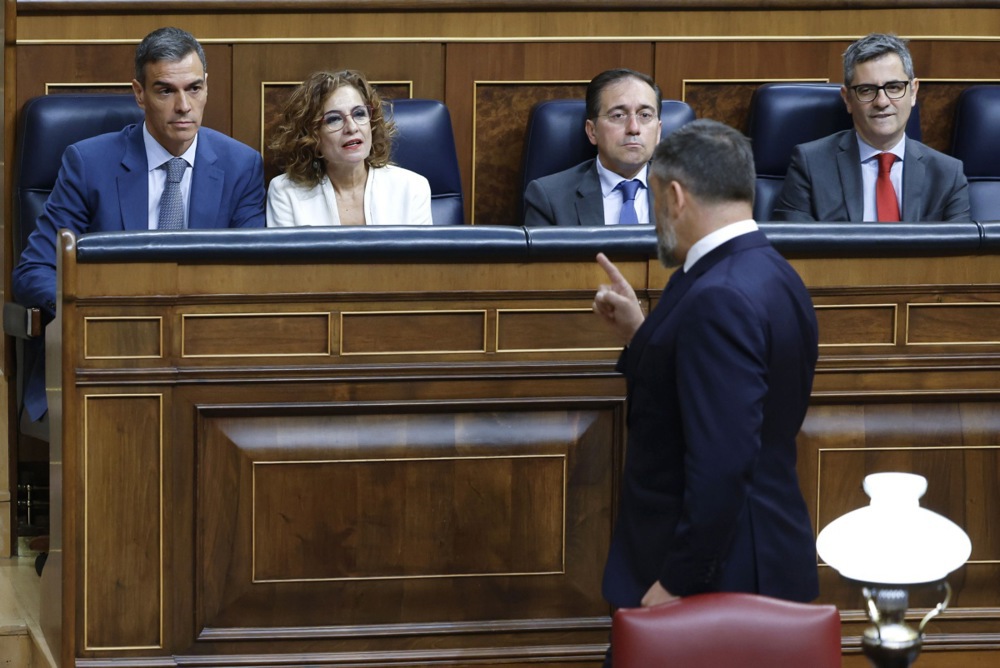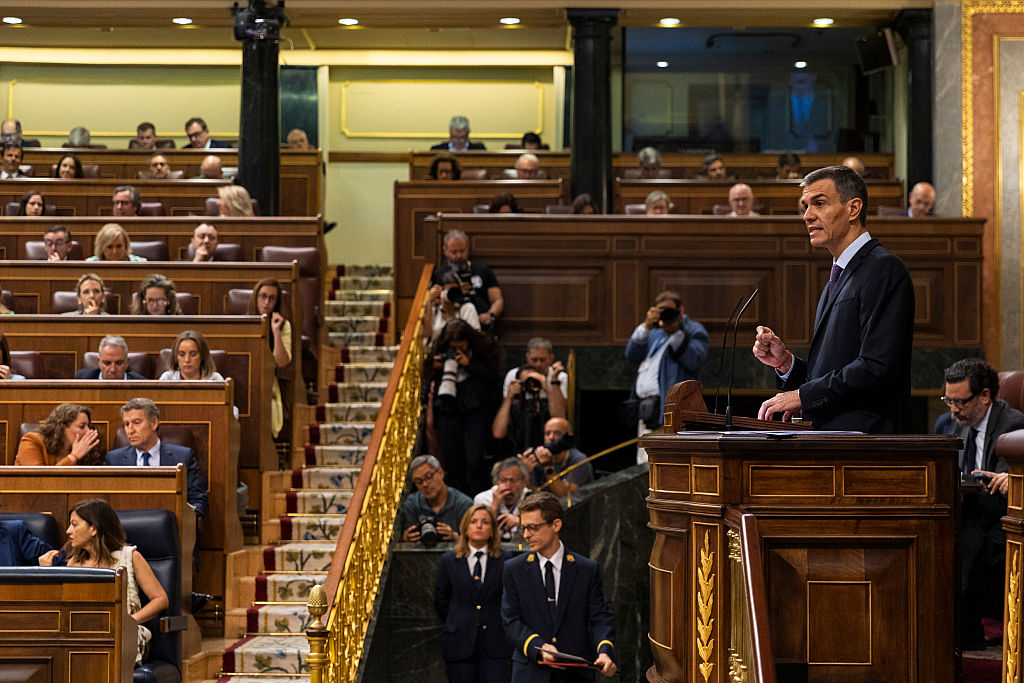In a blow to Spain’s Socialist government, the country’s Parliament has voted down a bill to reduce working hours.
Late 10 September, Spain’s Parliament rejected a flagship bill which would have reduced the maximum working week to 37.5 hours from 40.
Labour Minister and Deputy PM Yolanda Díaz said the measure would enhance work-life balance without reducing salaries.
It was a move hailed by trade unions but met with resistance from business groups and key political parties.
Lawmakers voted 178 to 170 to kill the proposal by PM Pedro Sánchez’s Socialist government.
The vote underscored the increased fragility of the government’s parliamentary support, and sparked intense political debate in a Madrid which is still facing substantial corruption scandals.
Votes against the measure came from the Conservative People’s Party (PP), right-wing Vox, the Catalan separatist Junts per Catalunya, and Navarre’s UPN.
Collectively, these parties argued the reform would harm the small and medium-sized enterprises which form the backbone of Spain’s economy.
Junts, a critical ally for PM Sánchez’s minority government, confirmed its opposition several days earlier.
There had been insufficient consultation with businesses in Catalonia, and economic concerns for the measure’s impact there, it said.
The Spanish Confederation of Business Organisations (CEOE) mirrored these sentiments, warning about reduced competitiveness and job losses, especially in sectors that rely on flexible hours.
Deputy PM Díaz, a prominent figure in the left-wing Sumar party, defended the bill as having the support of a “social majority”, pointing to widespread public support and agreements with unions like UGT and CCOO.
The proposal, which Spain’s Council of Ministers approved in May 2025, had been a cornerstone of the government’s progressive agenda.
It was meant to follow the country’s earlier labour reforms, such as a 2021 remote working law.
Difficulties in convincing the Junts, however, had already caused the vote to be postponed from July to September.
The defeat just after the political holiday has left deputy PM Díaz politically exposed, with critics labelling it her most significant parliamentary failure as a minister.
Díaz called Junts’ opposition “incomprehensible”.
She claimed SME profits have surged by over €6 billion, and said and her proposal would not severely impact them.
Díaz accused the Right of “slapping working people in the face”, while to the Left she said, “What you’re seeing today is a dress rehearsal for what a PP-Vox government would look like.”
While Sánchez’s team has hinted at reintroducing the bill with amendments aimed at securing broader support, analysts suggest the coalition’s reliance on fractious regional allies like Junts would complicate future negotiations.
The rejection also raises questions about the government’s ability to push through other contentious reforms before Spain’s next general elections, which will be held held no later than August 2027.
The PP (Partido Popular) dismissed the proposal as “driven by ideology, born without dialogue, and a harsh blow to workers and businesses”.
The party called Díaz’s plan “science fiction”, designed only for “her own glory”, and said it would lead to wage freezes, job losses, and reduced competitiveness.
Vox called the proposal “a lie and a trap” for workers and a “betrayal by Sánchez to bring down Yolanda Díaz”.
Spain’s progressive government, led by PM Pedro Sánchez and only formed with the assistance of a highly controversial amnesty law, would always face difficulties to get support for important votes in a fragmented political landscape.
The government is currently operating under the 2023 General State Budget, approved by the Congress of Deputies on 20 December 2022 . This has simply been extended for three consecutive years, as there was no majority for new budget.
This marks an unprecedented streak since Spain’s restoration of democracy in 1975.
Allegations of far-reaching corruption have similarly weakened the government’s brittle majority, and caused PM Sánchez’s Socialists to tank in the polls.





